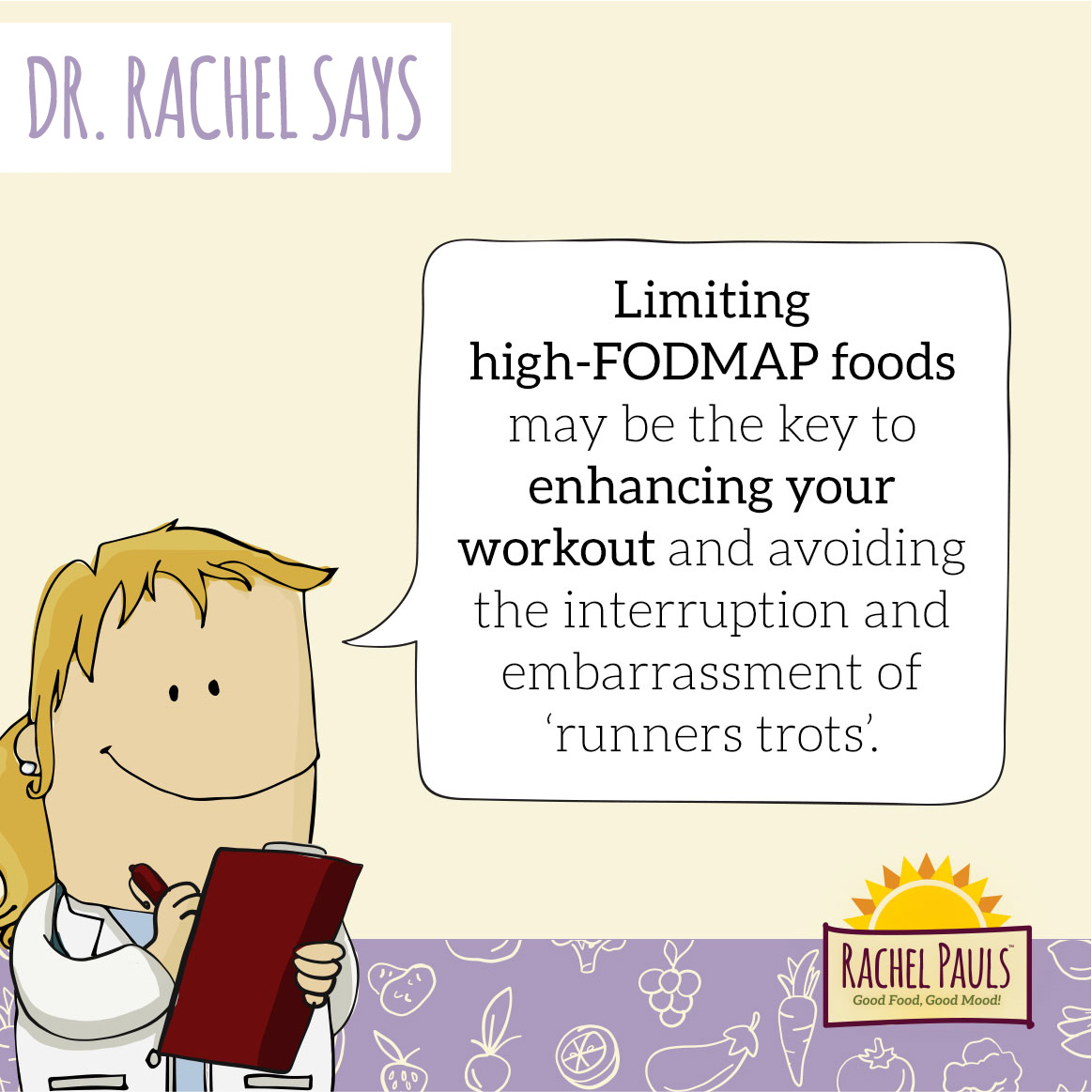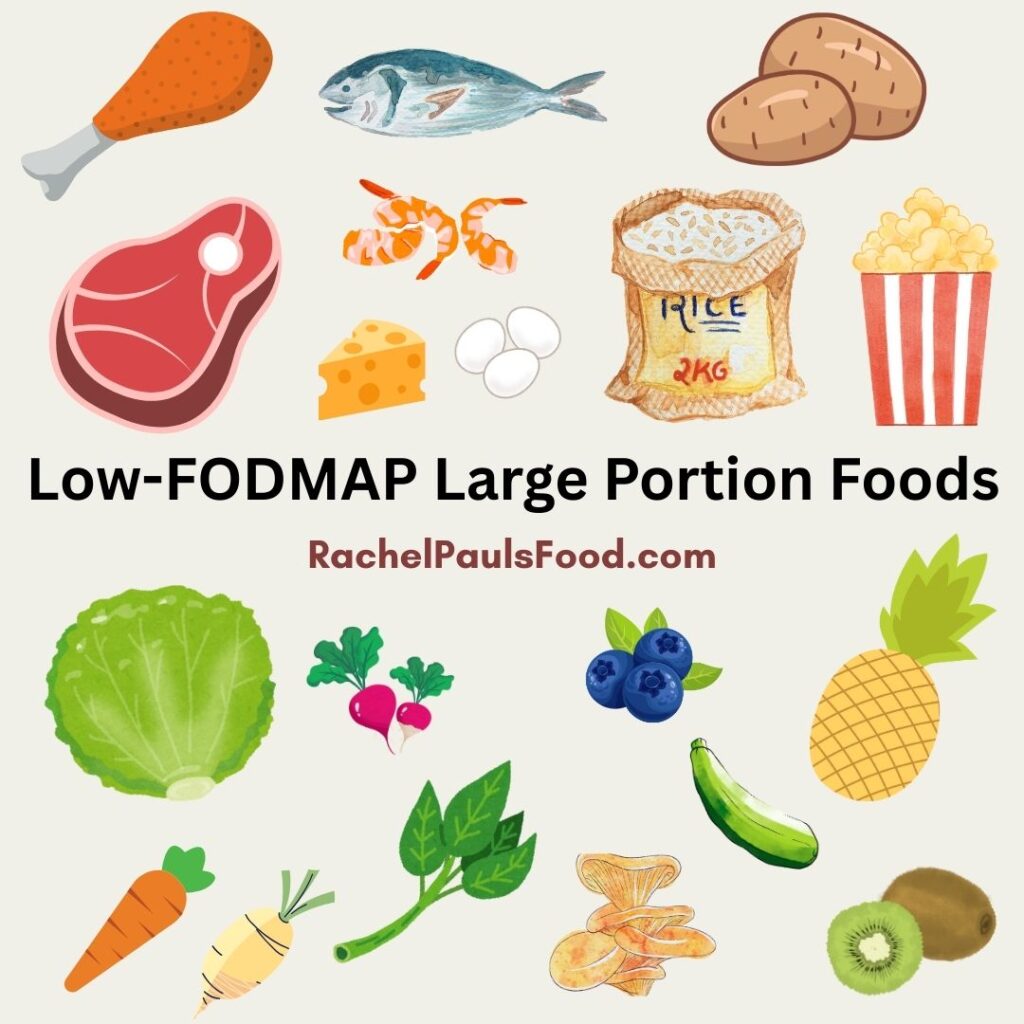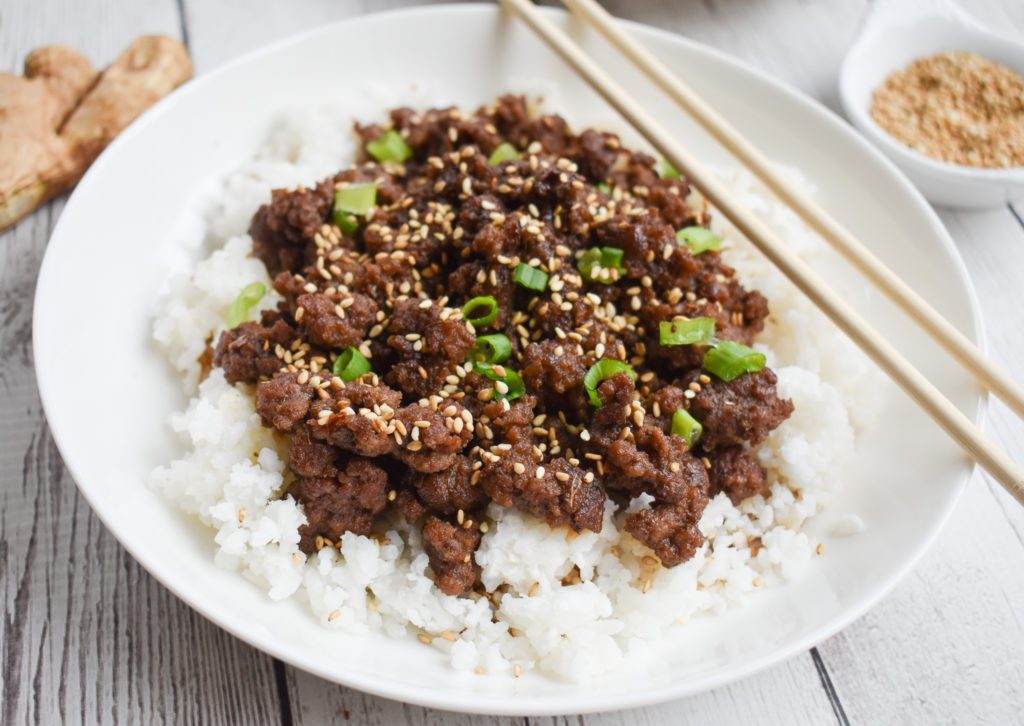It happens. A lot. Strenuous exercise triggers horrible cramping, gas and diarrhea. It is incredibly embarrassing if you are out in public. Has anybody ever grimaced while walking by your treadmill at the gym? Do you prefer to exercise outside so you don’t have to worry? Ever need a break halfway through your spin class to dash to the restroom? Well, I’ll admit…it has happened to me.
Sometimes referred to as ‘runners’ trots’, the phenomenon occurs in 30-70% of endurance athletes. We aren’t sure about the cause, but it could be a combination of the vibration of physical exercise, and shifts in blood flow from the intestines. It also seems to be more common in people with IBS or other digestive issues.
So, what to do…you can’t quit working out!
How about changing what you are eating?
Research Proves the Low-FODMAP Diet Prevents Exercise induced Gas, Cramping and Diarrhea and Keeps your Fitness Goals on Track
(It works for me!)
Here is some of the data:
- Lis and colleagues studied a group of 910 high performance athletes, and a large majority intentionally restricted foods prior to high exertion activities (1). When the restricted foods were scrutinized, FODMAPS were present 78% of the time.
- Subsequently, these authors used a low-FODMAP-diet program to treat an individual’s exercise-induced GI symptoms, with success (2) .
- Later, two separate publications evaluated low-FODMAP eating in a group of endurance athletes. One of the studies focused on those with GI symptoms (3), while the other study assessed healthy subjects and utilized both high and low-FODMAP eating for a period of time (4).
- Both reports support that exercise-related GI symptoms are lowered by avoiding FODMAPs.
- In January 2019, the International Journal of Sport Nutrition and Exercise Metabolism published the paper “Dietary Practices Adopted by Track and Field Athletes: Gluten-Free, Low FODMAP, Vegetarian and Fasting”, which directly discusses how low-FODMAP diet is beneficial (5).
- Most recently, The International Society of Sports Nutrition recommended that the low-FODMAP diet may alleviate symptoms of gastrointestinal distress during racing.
It just makes sense. FODMAPS are a group of carbohydrates that include wheat, dairy, fructose, and inulin. These carbs are difficult to digest and can result in symptoms of gas, bloating, diarrhea and cramping. What I find ironic, is many of these FODMAP offenders are added to energy bars and other sports beverages. So be careful what you fuel up with!
Limiting high-FODMAP foods may be the key to enhancing your workout and avoiding the interruption and embarrassment of ‘runners’ trots’. Make it easier to keep to your fitness resolutions by enjoying a low-FODMAP diet (and my favorite, Happy Bars and Happy Jerky)!
Also…Check out over 500 low FODMAP recipes right here on the blog!
Be healthy and happy,
Rachel Pauls, MD

References:
1. Lis D, Ahuja KD, Stellingwerff T, et al. Food avoidance in athletes: FODMAP foods on the list. Applied physiology, nutrition, and metabolism = Physiologie appliquee, nutrition et metabolisme. 2016:1-3.
2. Lis DM, Ahuja KD, Stellingwerff T, et al. Case Study: Utilizing a Low FODMAP Diet to Combat Exercise-Induced Gastrointestinal Symptoms. International journal of sport nutrition and exercise metabolism. 2016.
3. Lis DM, Stellingwerff T, Kitic CM, Fell JW, Ahuja KDK. Low FODMAP: A Preliminary Strategy to Reduce Gastrointestinal Distress in Athletes. Medicine and science in sports and exercise. 2017.
4. Wiffin M, Smith L, Antonio J, et al. Effect of a short-term low fermentable oligosaccharide, disaccharide, monosaccharide and polyol (FODMAP) diet on exercise-related gastrointestinal symptoms. J Int Soc Sports Nutr. 2019; 16 (1):1.
5. Lis DM, Kings D, Larson-Meyer E, Dietary Practices Adopted by Track and Field Athletes: Gluten-Free, Low FODMAP, Vegetarian and Fasting. Int J Sport Nutr Exerc Metab. 2019 Jan 11:1-33. doi: 10.1123/ijsnem.2018-0309. [Epub ahead of print].
6. Tiller, N. B.; Roberts, J. D.; Beasley, L.; Chapman, S.; Pinto, J. M.; Smith, L.; Wiffin, M.; Russell, M.; Sparks, S. A.; Duckworth, L.; O’Hara, J.; Sutton, L.; Antonio, J.; Willoughby, D. S.; Tarpey, M. D.; Smith-Ryan, A. E.; Ormsbee, M. J.; Astorino, T. A.; Kreider, R. B.; McGinnis, G. R.; Stout, J. R.; Smith, J. W.; Arent, S. M.; Campbell, B. I.; Bannock, L. International Society of Sports Nutrition Position Stand: nutritional considerations for single-stage ultra-marathon training and racing. J Int Soc Sports Nutr2019, 16, 50.









